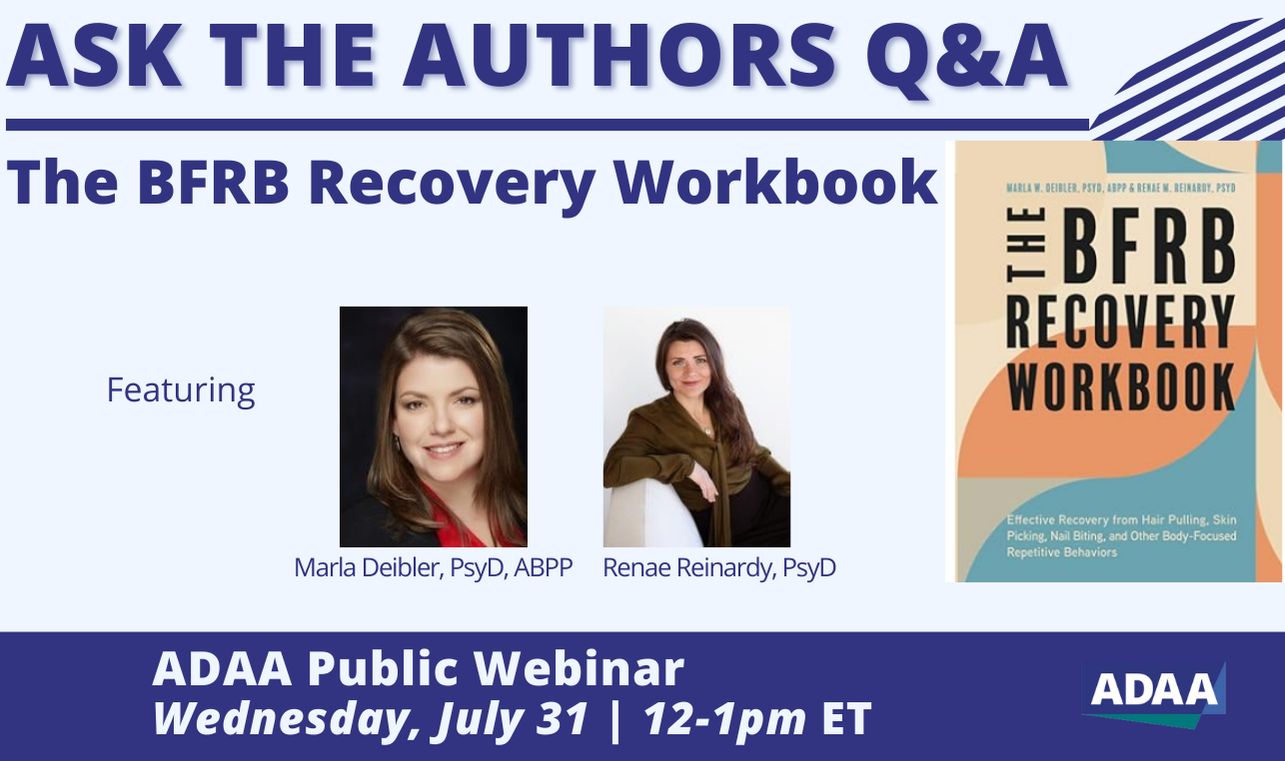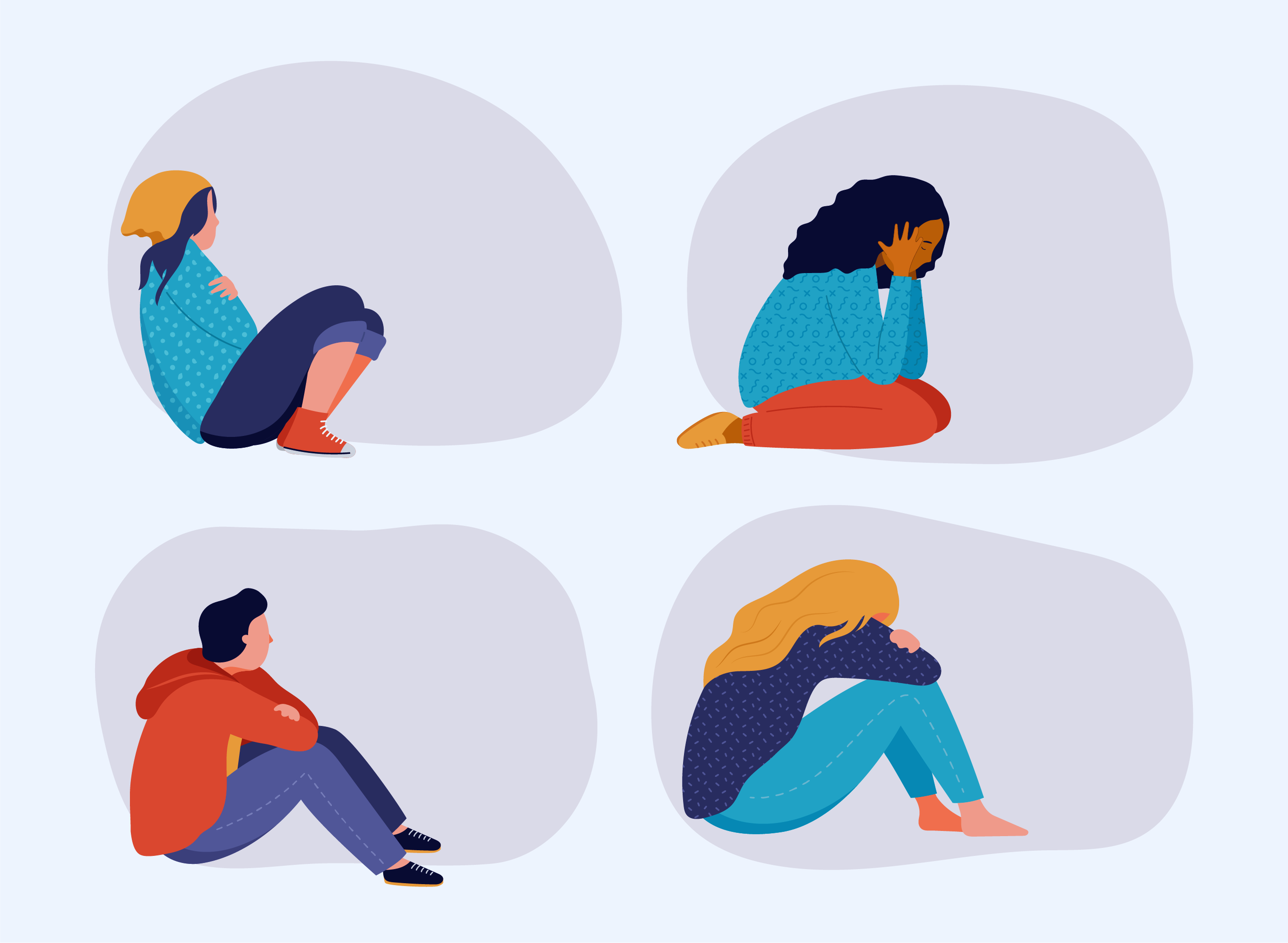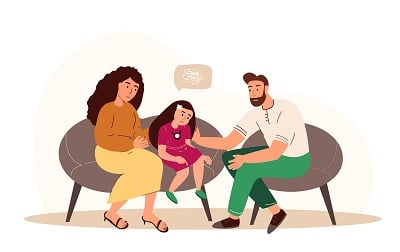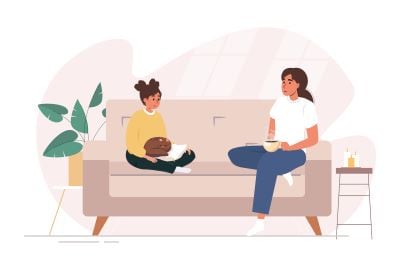
September 17, 2024
Jenny Yip, PsyD, ABPP
and
Sohye Kim, PhD
and
Author Jenny Yip, PsyD, ABPP, answers questions from a live audience and discusses her book, "Hello Baby, Goodbye Intrusive Thoughts: Stop the Spiral of Anxiety and OCD to Reclaim Wellness on Your Motherhood Journey."

July 31, 2024
Marla Deibler, PsyD
and
Renae M. Reinardy, PsyD
and
Dr. Marla Deibler and Dr. Renae Reinardy, authors of The BFRB Recovery Workbook, answer questions from a live audience about BFRB and their self-paced workbook.

May 3, 2024
Ryan Brown, MD
and
When a teen seems depressed or talks about suicide it can be hard to know what to do as a caregiver. In this webinar Dr. Ryan Brown shares tips and strategies to identify the signs of depression and address the risk of suicide in teens.

June 11, 2024
Melanie VanDyke, PhD
and
C. Alec Pollard, PhD
and
Free - now available on-demand. Drs. Alec Pollard and Melanie VanDyke explain why some people behave in ways that are incompatible with recovery and offer suggestions for how to deal effectively with a psychiatrically impaired loved one who won’t seek help.

June 4, 2024
Maya Massing-Schaffer, PhD
and
Daniel Stone, PhD
and
The InStride Health team discusses the importance of taking a systems-based approach to care, identify common challenges, and offes practical solutions. They also provide recommendations for how caregivers can facilitate “surround sound” for their child when working with the various adults in their child’s system.








